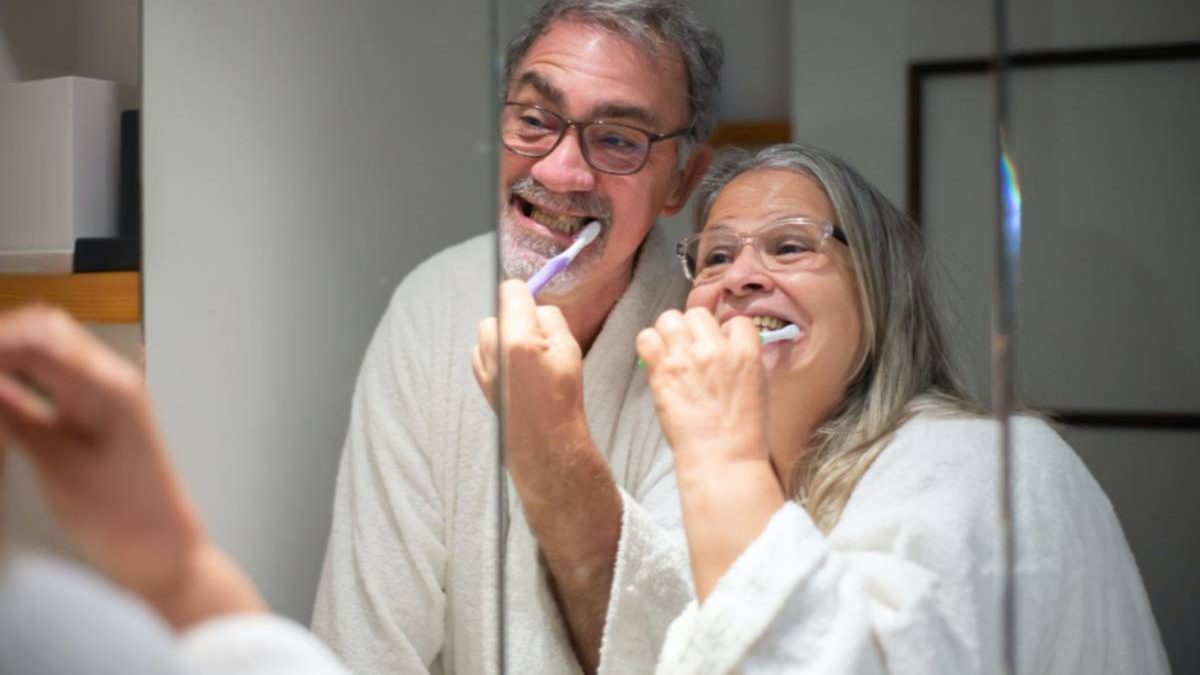As you get older, it’s normal to lose some of your teeth. It’s also normal to get a little scared and nervous when that happens. But don’t worry! There are many ways to prevent this from happening or lessen the impact of losing teeth as you age. Here are some tips:
Table of Contents
Schedule dental checkup
- Schedule a dental checkup at a dental clinic in Hoppers Crossing. The best way to prevent tooth decay and gum diseases is by getting regular cleanings and checkups. If you have lost teeth, it’s important to get dentures done right away so that they can help protect the remaining ones from decaying as well.
- Brush at least twice a day with fluoride toothpaste (or use an ADA-approved alternative), floss daily, and visit the dentist every six months for professional cleaning and exams–or more often if there are any problems noted during these visits.
Maintain good oral health
As you age, it’s important to maintain good oral health. Good oral health can help prevent tooth loss and other problems that come with age. The American Dental Association recommends that people see their dentist every six months for a checkup and cleaning. You should also brush your teeth twice daily with fluoride toothpaste; floss at least once a day; avoid sugary foods and drinks; and visit the dentist right away if you have any problems with pain or bleeding gums
Brush and floss daily
As you age, it’s important to brush your teeth at least twice per day and floss once per day. This can help prevent cavities and gum disease from developing in your mouth. Dentists recommend brushing 2-3 times each day, with an extra session before bedtime if possible.*
Toothpaste should also be used regularly; ideally right after brushing so that the fluoride can work its way into the enamel of your teeth. If you have sensitivity issues with toothpaste (e.g., if they contain baking soda or sodium lauryl sulfate), try switching dental products until one is found that doesn’t cause pain or irritation when used regularly.
Avoid grinding your teeth or clenching your jaw while you sleep
If you grind your teeth or clench your jaw while sleeping, it can cause TMJ. This is a type of arthritis that causes pain in the jaw joint. You may also get headaches from this condition.
If you want to stop grinding your teeth, there are devices available that will help with this problem such as mouth guards and night guards (a plastic device worn at night).
Get dentures done
If you’re missing teeth, acrylic partial dentures are a great option. Dentures can be made to look like your natural teeth and fit perfectly into the space where they were removed. They also allow for chewing and talking, which is why dentures are often used as an alternative to having partial or full implants put in place.
If you’re considering getting dentures, make sure to visit a dentist who specializes in this procedure!
Limit or stop smoking, alcohol and drug use
If you smoke, it’s important to quit. Smoking can lead to gum disease and tooth loss. If you drink alcohol or use drugs, limit your intake as much as possible. Alcohol and drugs can cause dry mouth that leads to tooth decay.
Recap
Maintaining good oral health is important for many reasons. It helps prevent tooth loss as you age, gum disease and other problems. Here are some tips for maintaining good oral health:
- Brush your teeth at least twice a day with a soft-bristled brush. Use fluoride toothpaste (fluoride helps strengthen enamel). Floss once daily to remove food particles from between the teeth that brushing may miss.
- Eat a balanced diet including foods such as fruits and vegetables that are high in calcium so that your body can produce saliva which acts like nature’s rinse for your mouth!
Conclusion
Losing teeth is a natural part of aging, but there are things you can do to prevent it. By maintaining good oral health and eating a healthy diet, you can reduce your risk of tooth loss. It’s also important to see your dentist regularly so he or she can check for cavities, gum disease (gingivitis) and other problems that may cause tooth loss.

